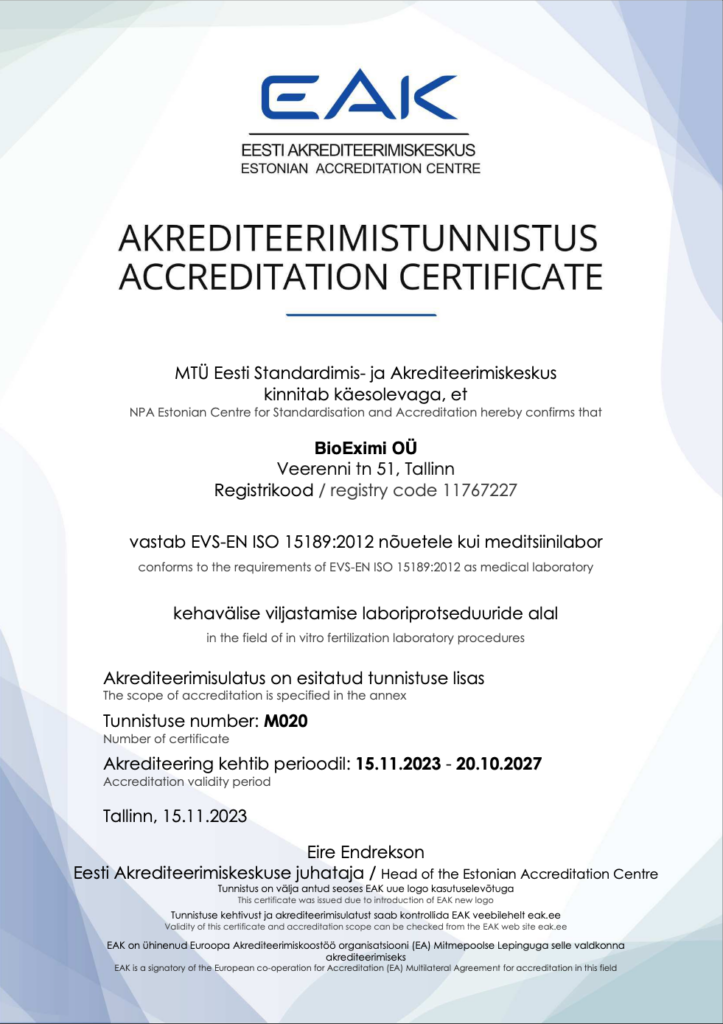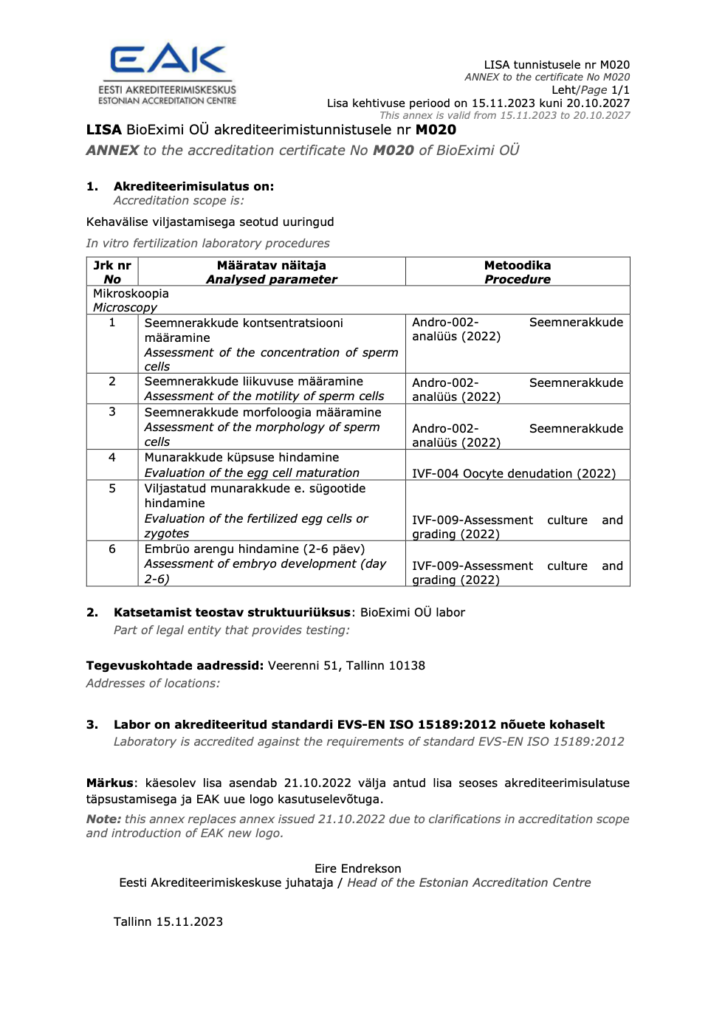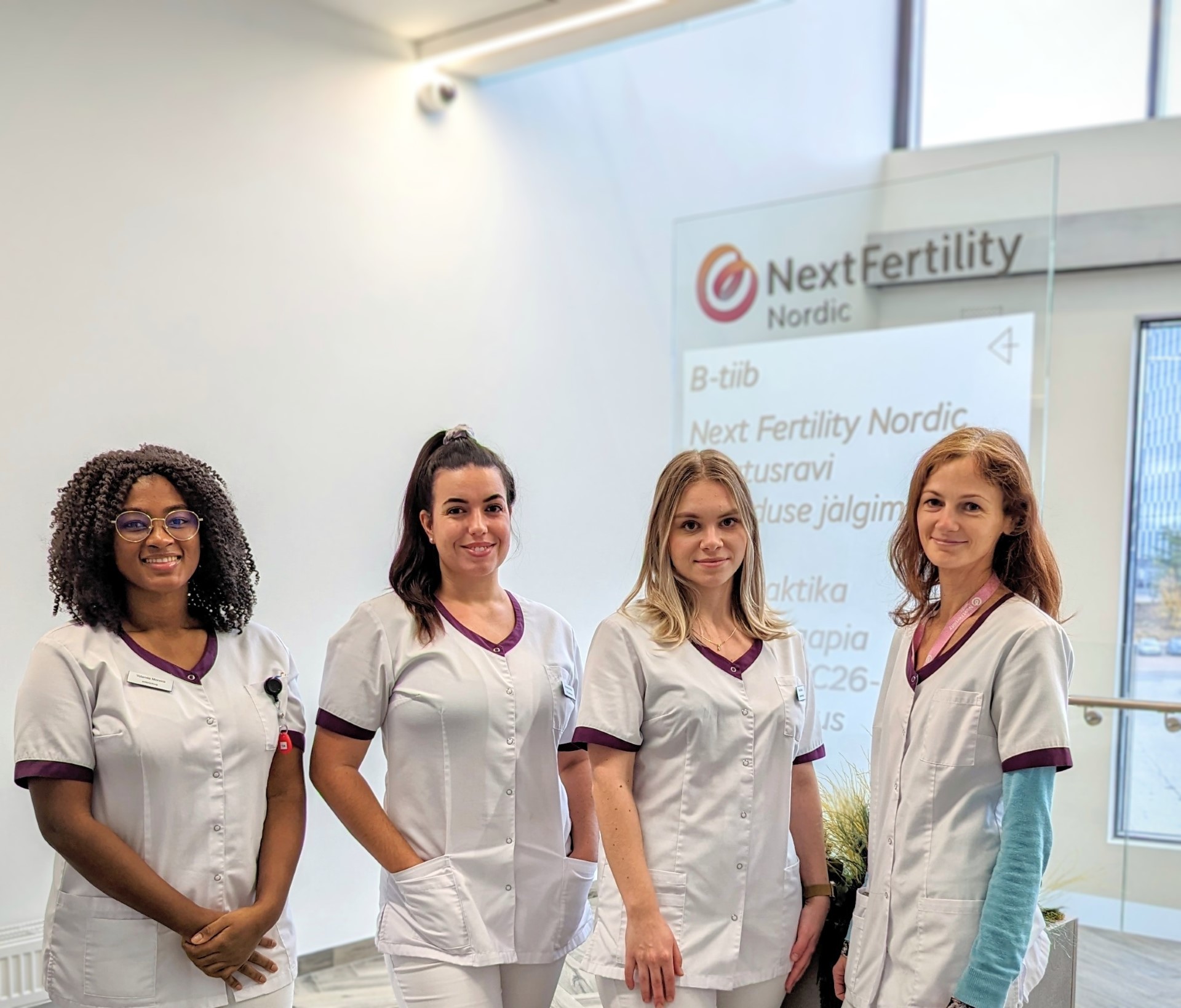
On 15.11.23, BioEximi OÜ achieved a renewal of their medical laboratory ISO15189 certificate, M020.
Lab manager Samantha Wake states Next Fertility Nordic (BioEximi OÜ) has state of the art laboratories designed around the Cairo consensus recommendations. It has implemented the following technology:
- Timelapse culture (non-disturbed culture up to Day 6 in EmbryoScope)
- Electronic tracking of identities, procedure times and batches of material (RI Witness)
- Artificial Intelligence (AI) embryo scoring (iDA score)
- Automated Semen Quality Analyzer (Lenshooke X1 Pro)
- Centrifugation free microfluidic sperm selection tool for IVF/ICSI (Lenshooke sperm separation device – replaces traditional gradient/wash methods)
- Automated alarm system on critical equipment (LoRa sensors)
- Use of modern data collection databases (Meditex and VRepro)
Class C cleanness:
The requirement of an IVF laboratory (room) is to maintain a minimum Class D quality of air. Under closer inspection, we tested our IVF lab and Operating Room and were able to achieve a Class C quality of air classification.
Pure air quality is achieved by a complex integrated HEPA and Life Aire filters in a complex ventilation system. In addition, VOC filters are attached to each incubator.
What is the ISO 1589:2012?
- ISO (the International Organization for Standardization) is a worldwide federation of national standards bodies.
- The ISO 1589:2012, titled ‘Medical laboratories: Requirements for quality and competence’, specifies the requirements for the design, installation, and operation of medical laboratories. This European Standard was approved by CEN on 31 October 2012.
- Standards like ISO 15189 are crucial for medical assisted reproduction clinics because it establishes guidelines for quality, safety, and competence in the procedures they perform. It ensures that clinics maintain high standards in handling reproductive technologies, laboratory practices, patient care, and ethical considerations. Compliance with these standards helps guarantee the safety of patients undergoing assisted reproduction procedures and maintains the credibility and reliability of the clinics within the medical community.
- As part of the accreditation, the clinic submits a quality hand-book (a 40 page internal guide to the clinic describing it’s operation and function) which is understood by all clinic members and read by EAK assessors.
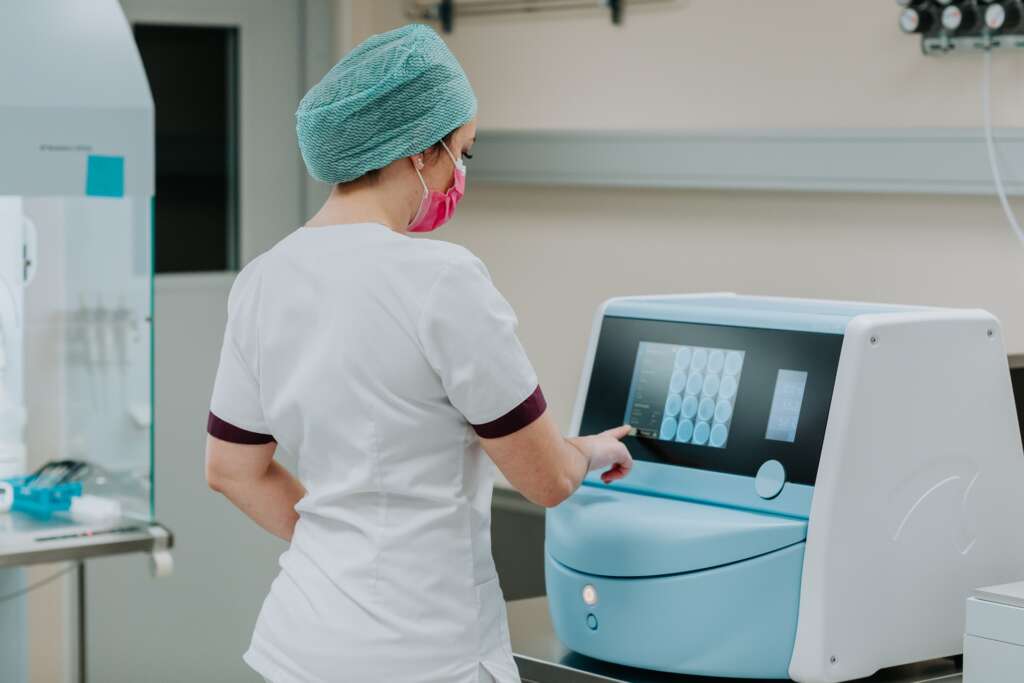
Why ISO15189 is important?
Patient Safety: ISO15189 standards prioritize patient safety above all else. The adherence to medical laboratory standards ensures that our laboratories follow strict protocols to minimize risks and errors during procedures, ensuring a safe environment for their treatment.
Quality Assurance: Being compliant to ISO15189 standards shows high-quality services are offered. It ensures that every step of the process, from laboratory practices to patient care, meets internationally recognized benchmarks.
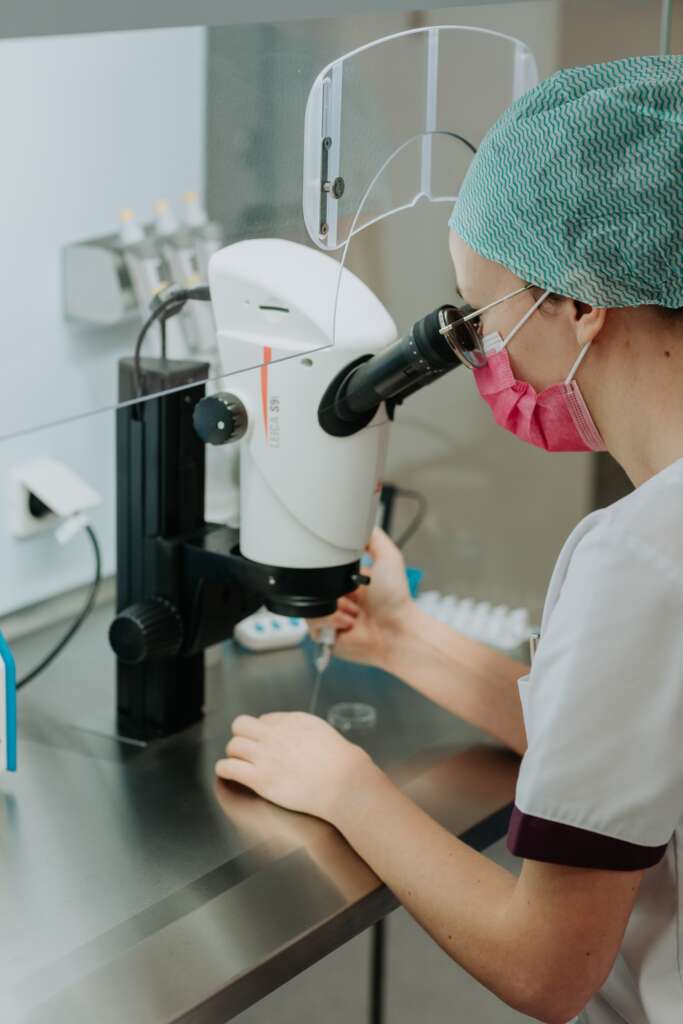
Reliability and Trust: It reflects our commitment to excellence, which can foster trust and confidence in patients seeking assisted reproduction services.
Consistent Improvement: ISO15189 accreditation is not a one-time effort but an ongoing commitment. The clinic regularly assesses its documentation system and makes recommendations submitted by the auditing assessors where improvements can and should be made to become compliant.
Transparency: We operate with transparency in our procedures, protocols, and quality control measures. Our SOPs and KPIs and document database are reviewed by assessors during our annual inspections.
Global Recognition: ISO standards means our clinic is recognized globally for its quality standards. This aspect is particularly important for patients who are considering treatment internationally.
Our ISO15189 certified methods:
1) Assessment of concentration of sperm cells
2) Assessment of motility of sperm cells
3) Assessment of morphology of sperm cells
4) Evaluation of egg cell maturation
5) Evaluation of fertilised egg cells or zygotes
6) Assessment of embryo development (day 2-6)
What have we learnt?
- The importance of an up-to-date documentation system, accessible to staff (online) in order for each department to carry out their work easily with accuracy and reliability.
- Increasing the amount of inter-lab and intra-lab variability testing ensures we are reporting results within the same range as each other and compared to other clinics. It enables us to test (and prove) our own competence.
- You need the right attitude to process continual constructive criticism and turn it into positive changes.
Quality Manager at the Estonian Accreditation Centre, Anastassia Filimonova announced Estonian Accreditation Centre’s (EAK’s) positive decision regarding evaluation of BioEximi OÜ:
Many thanks to the employees of the institution for their constructive attitude towards the assessment!
